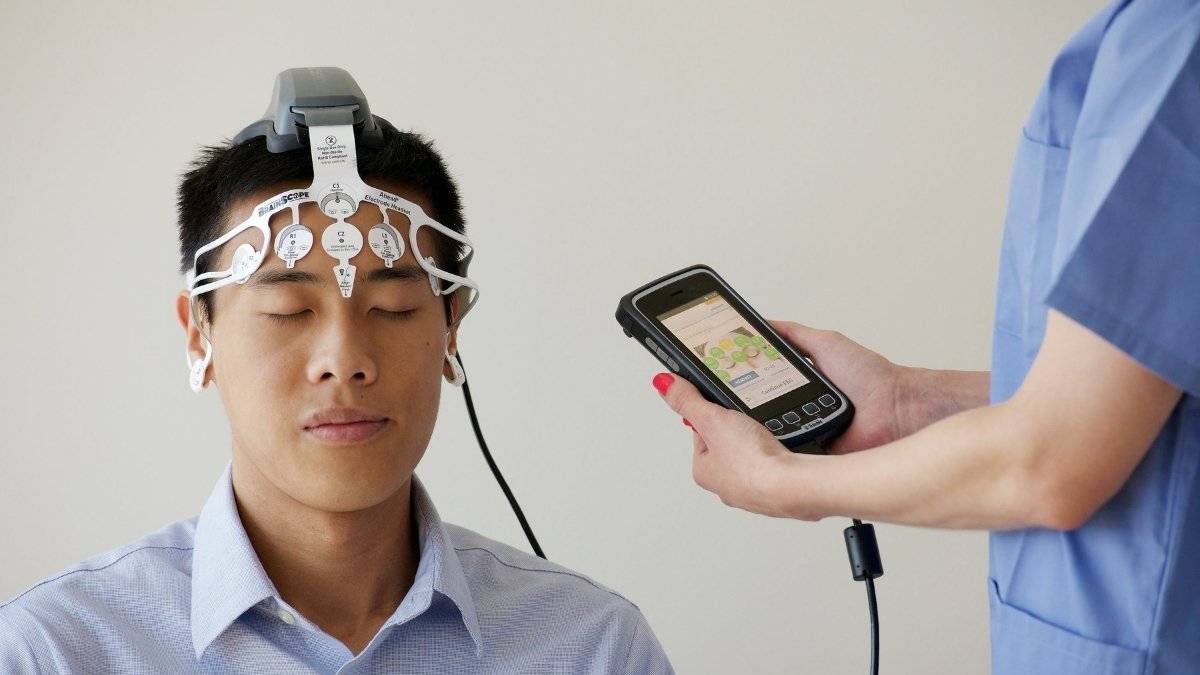
Ever wonder why some people seem to effortlessly solve problems while others struggle? The answer might be hiding in plain sight—in the electrical rhythms of your brain.
You know that feeling when you’re completely “in the zone”?
When complex problems suddenly feel simple. When distractions fade away. When your mind feels… sharper.
Turns out, there’s actual science behind that feeling.
And it all comes down to a mysterious brain wave that’s been hiding in your head this whole time.
The Discovery That’s Rewriting Intelligence
🧠 Timeline: Journey to Discovering Intelligence Signals
Here’s what just happened in a lab in Germany:
148 people sat down wearing funny-looking caps covered in electrodes. They solved puzzles, switched between tasks, and made split-second decisions.
The results? Mind-blowing.
Scientists discovered that the smartest people in the room weren’t just thinking faster or harder. Their brains were doing something completely different.
They were synchronizing.
Meet Your Brain’s Secret Orchestra
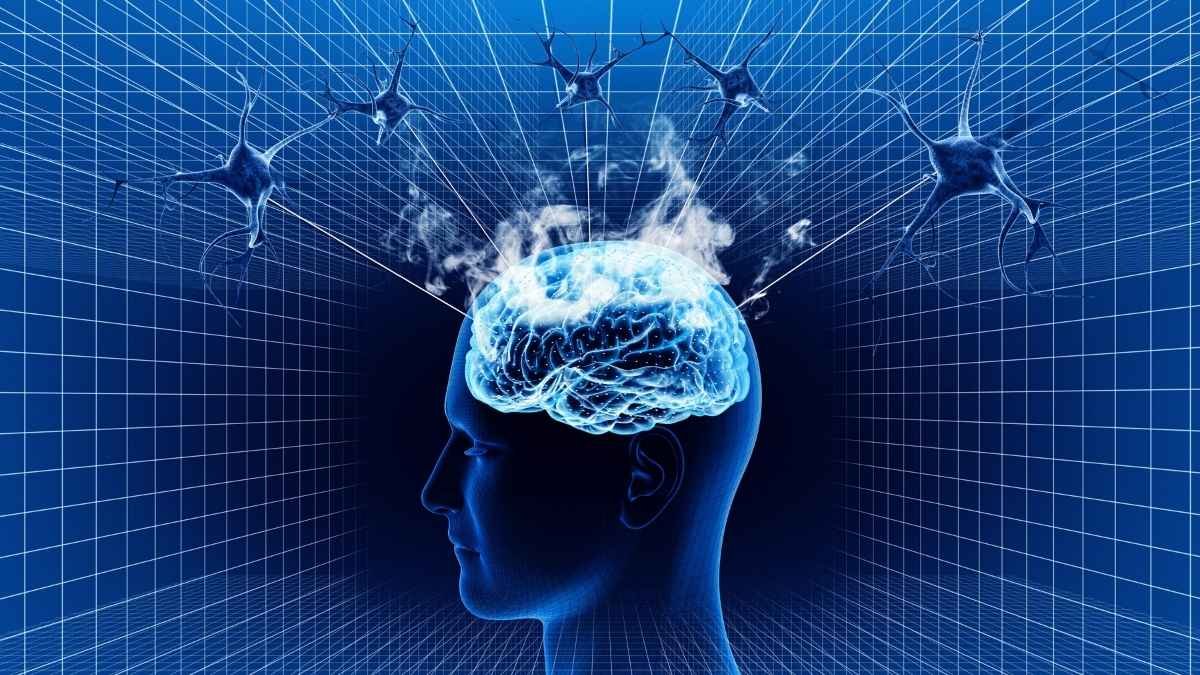
Right now, as you read this, your brain is putting on a show.
86 billion neurons are firing in rhythmic patterns. Think of it like this:
- Your brain = A world-class orchestra
- Different regions = Different instrument sections
- Theta waves = The underlying rhythm keeping everyone in sync
Here’s the kicker: The smarter you are, the better your brain’s “conductor” becomes at coordinating this neural symphony.
What Are Theta Waves Anyway?

Let me break this down without the science jargon.
Theta waves are electrical patterns in your brain that pulse 4-8 times per second. That’s pretty slow compared to other brain waves.
Think of them as your brain’s bass line – steady, rhythmic, and essential for everything else to work properly.
When do these waves sync up across different brain regions? Magic happens.
The Numbers That Shocked Even Scientists
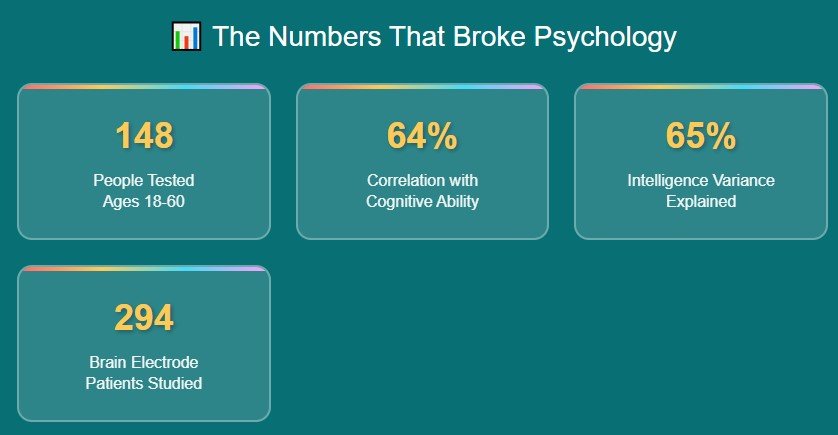
Professor Anna-Lena Schubert led this groundbreaking research. When she saw the results, she couldn’t believe it.
“We did not expect the relationship to be this clear,” she admitted.
How clear? Let’s talk numbers:
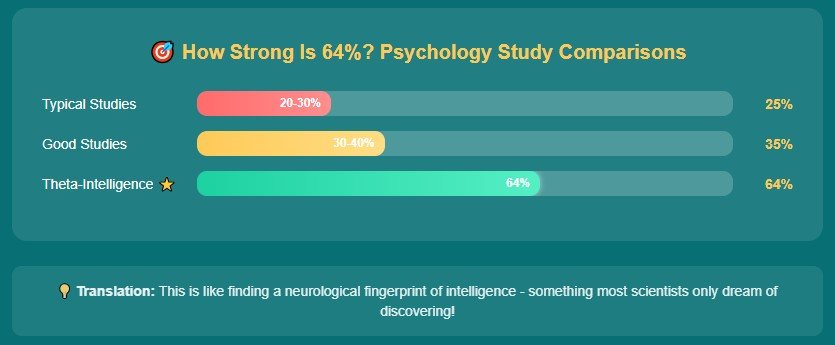
✅ 64% correlation between theta wave sync and cognitive ability
✅ 65% of intelligence differences explained by theta patterns
✅ 148 people tested across all adult ages
✅ Multiple cognitive tasks showed the same pattern
To put this in perspective: Most psychology studies are thrilled to find 20-30% correlations.
This is like discovering a neurological fingerprint of intelligence.
Your Brain’s Flexible Genius

Here’s what makes this discovery so different from everything we thought we knew about intelligence.
It’s not about:
- Having the “fastest” brain
- Constant high activity
- More neurons are firing all the time
It’s about:
- Flexible coordination when you need it most
- Adaptive timing that matches the situation
- Dynamic synchronization during crucial moments
Think of it like this: A race car driver isn’t always driving at top speed. The skill is knowing exactly when to accelerate and when to brake.
Your brain works the same way.
The Paradox That Puzzled Scientists for Decades
🤯 The Theta Wave Paradox That Stumped Scientists
Not doing anything mental
Making decisions
Bad when lounging
Great when exercising
Awkward in conversation
Perfect in meditation
Lazy when avoiding work
Smart when recovering
Ready for your mind to be blown?
High theta waves during rest = Lower intelligence
High theta waves during tasks = Higher intelligence
Wait, what?
It’s like discovering that sugar is bad for you when you’re sitting around, but incredibly good for you when you’re running a marathon.
Context is everything.
The smartest brains aren’t “always on.” They’re strategically adaptive.
Real-World Translation: What This Means for You
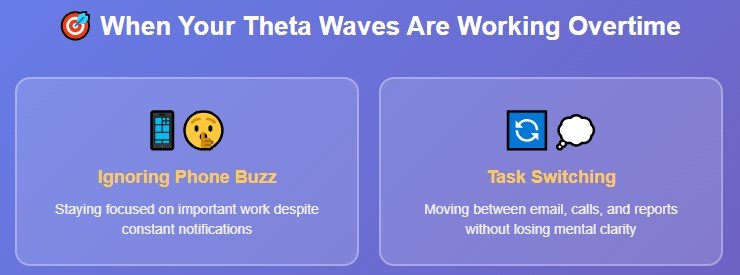
“People with stronger theta connectivity are better at maintaining focus and tuning out distractions – whether that’s your phone buzzing while you’re working or reading a book in a busy train station.” – Professor Schubert
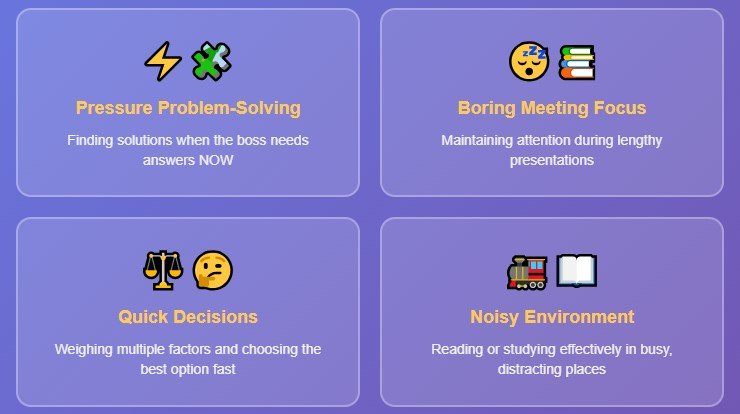
In everyday life, this shows up when you:
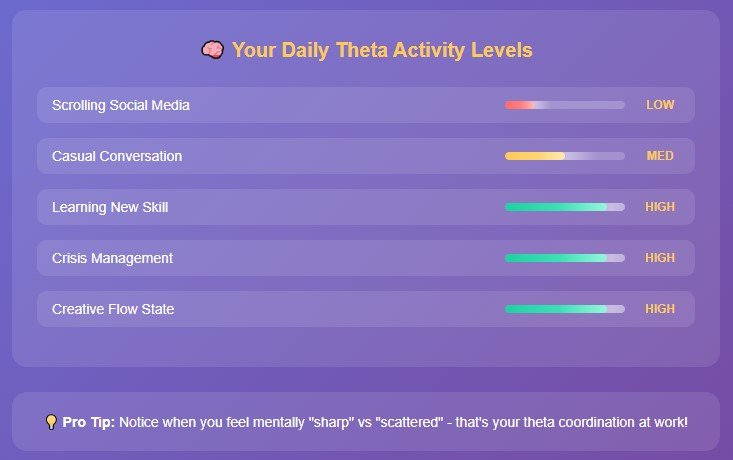
🎯 Switch tasks without losing focus
🎯 Solve problems under pressure
🎯 Stay concentrated during boring meetings
🎯 Make quick decisions with multiple factors
🎯 Ignore distractions when they matter
Your theta waves are working overtime during these moments.
The Memory Connection You Need to Know
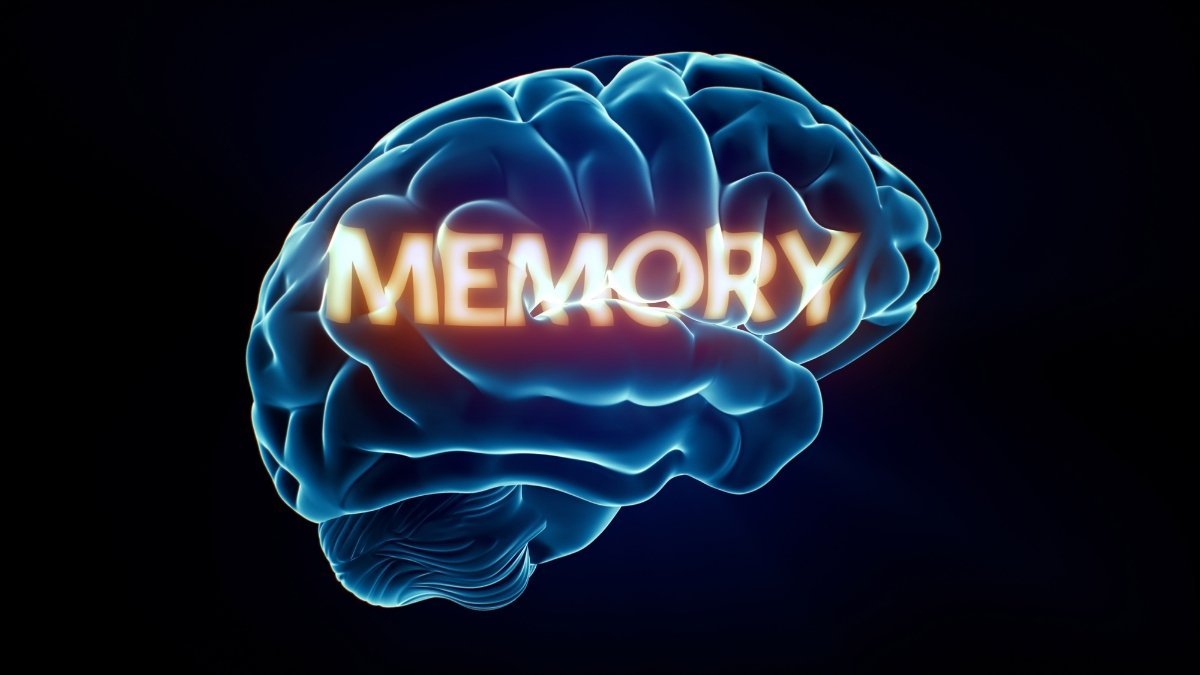
This isn’t just about being “smart” in the traditional sense.
Theta waves are your brain’s filing system.
When you’re trying to remember something important, these waves help coordinate between your brain’s memory center (the hippocampus) and other regions.
The research is fascinating: Studies of 294 people with brain electrodes showed that during memory tasks, theta networks sync up while other brain networks actually quiet down.
It’s like your brain switches between “chaotic thinking mode” and “organized filing mode.”
Pretty cool, right?
The Creative Connection

But wait – there’s more.
Theta waves aren’t just about logical intelligence. They’re your gateway to creativity.
Ever notice your best ideas come when you’re:
- Taking a relaxing shower 🚿
- Going for a walk without your phone 🚶♀️
- Daydreaming during downtime 💭
- Just before falling asleep 😴
That’s theta waves at work. They’re literally connecting dots between random pieces of information in ways your conscious mind never could.
When Things Go Wrong

Like any powerful system, theta coordination can malfunction.
MIT researchers found that disrupted brain wave sync contributes to:
- Attention disorders
- Memory problems
- Epilepsy
- Various cognitive challenges
But here’s the hopeful part: Understanding these patterns opens doors to new treatments.
If we can identify broken rhythms, we might be able to fix them.
Can You Actually Boost Your Intelligence?
🚀 Can You Train Your Brain to Be Smarter?
This is the million-dollar question everyone wants answered.
The short answer? Maybe.
The longer answer? The research suggests theta wave coordination might be more trainable than we ever imagined.
What Works (Based on Current Science)
🧘♀️ Meditation
Regular practice increases theta activity. It’s like strength training for your brain’s conductor.
📚 Deep Focus Activities
Reading, puzzles, learning instruments – anything requiring sustained, relaxed attention.
😴 Strategic Napping
Those 20-30 minute afternoon naps? Your brain might be trying to reset its rhythms.
🎨 Creative Pursuits
Drawing, writing, any “flow state” activity often coincides with increased theta waves.
The Neuroplasticity Factor
Here’s what’s exciting: Your brain can literally rewire itself based on what you do.
Recent studies show:
- 8-12 weeks of theta training creates measurable brain changes
- Effects persist 6-8 months after training stops
- This suggests lasting improvements, not temporary boosts
Translation: You’re not stuck with the brain you have. You can potentially train it to work better.
The Technology Revolution Coming Soon

We’re not quite ready for “intelligence boosting” headbands (sorry, sci-fi fans).
But researchers are experimenting with:
🔬 Neurofeedback systems that teach you to produce specific brain patterns
🎵 Audio frequencies designed to encourage theta waves
🧠 Brain-computer interfaces for cognitive challenges
The most mind-blowing discovery? When people have meaningful conversations, their brain waves literally synchronize.
Intelligence might not just be individual – it might be something we can share.
What This Means for Your Daily Life
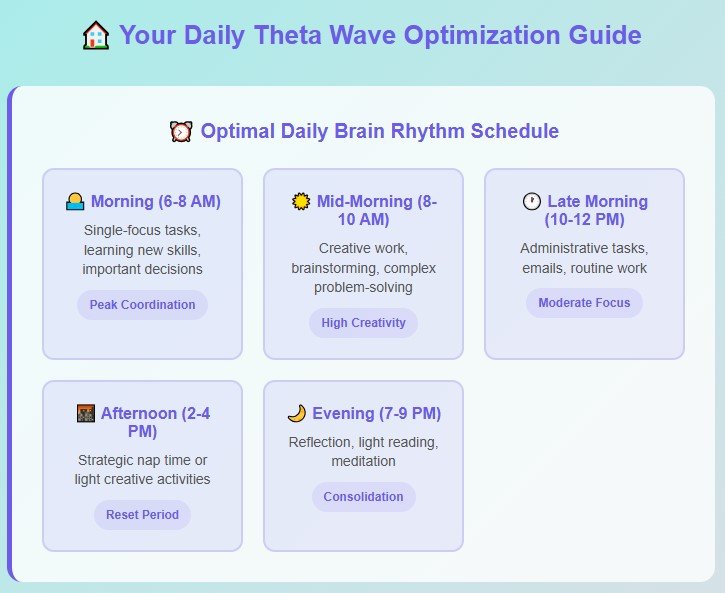
Forget everything you thought you knew about being “smart.”
This research suggests intelligence is less like having a fast computer processor and more like being a skilled conductor.
You can’t add more musicians to your brain’s orchestra, but you can help them play together more beautifully.
Practical Tips You Can Try Today
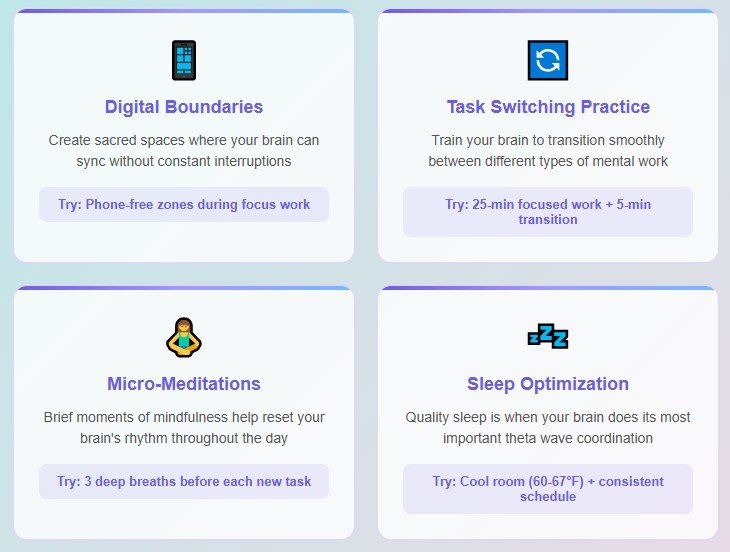
🌅 Morning Focus Sessions
Spend 10-15 minutes on a single, engaging task before checking your phone.
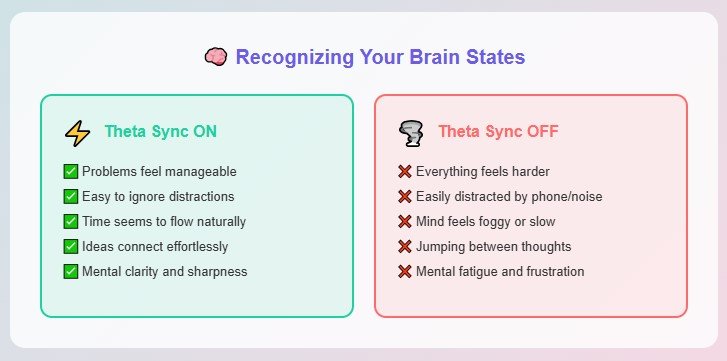
📱 Create Distraction-Free Zones
Your brain needs quiet time to synchronize properly.
🤔 Practice Task Switching
Deliberately switch between different types of mental activities.
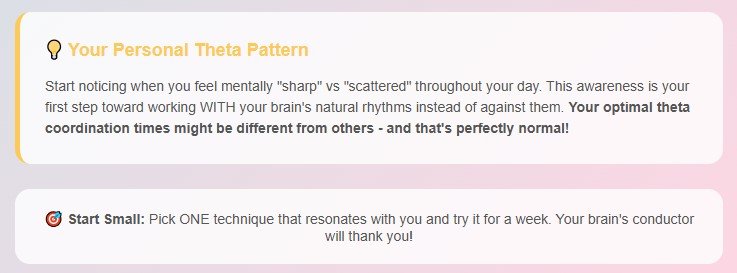
💤 Respect Your Sleep
Quality sleep is when your brain does its most important theta wave work.
The Bigger Picture: Intelligence Redefined
This research is fundamentally changing how we think about human potential.
Old view: Intelligence is fixed, like height
New view: Intelligence is dynamic, like fitness
This is incredibly hopeful news.
It means being “smart” isn’t about winning the genetic lottery. It’s about learning to work with your brain’s natural rhythms.
What Scientists Are Working on Next

The research is far from over. Current questions keeping neuroscientists up at night:
- Can theta training actually improve real-world problem solving?
- How do genetics influence these patterns?
- Could we develop “brain fitness” programs?
- What about age-related changes?
New studies are already recruiting participants to answer these questions.
Your Brain’s Hidden Symphony
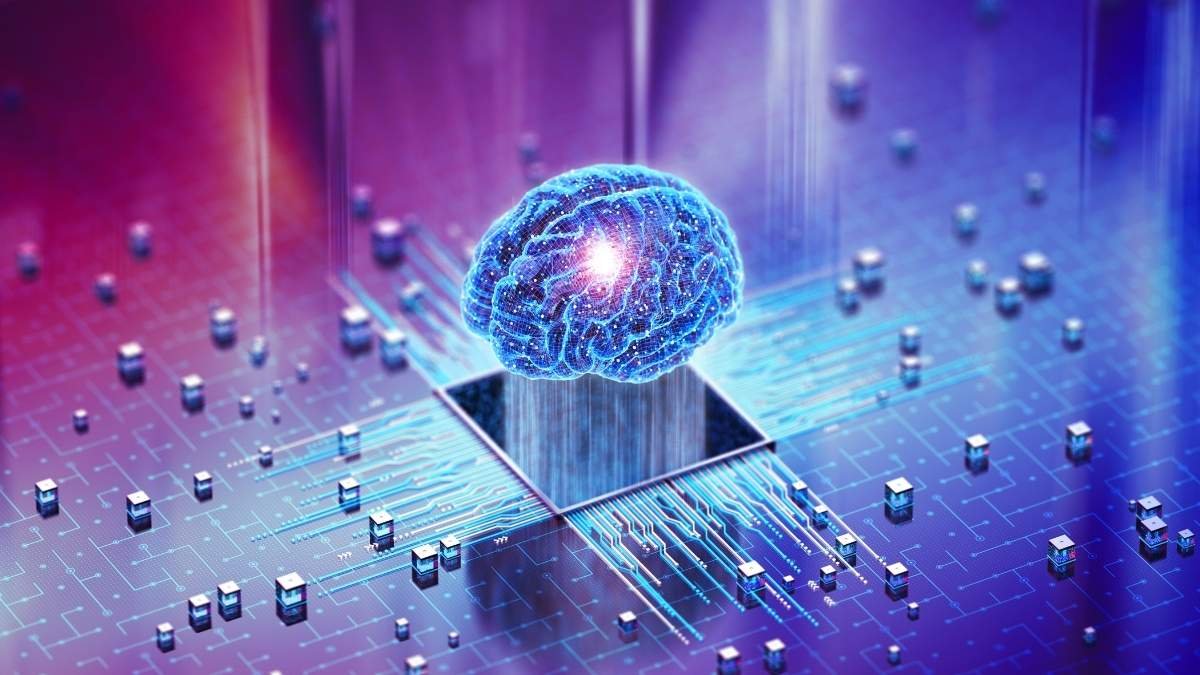
Take a moment right now.
As you process these ideas, maybe you feel a spark of curiosity or excitement; your neurons are creating electrical patterns that are uniquely yours.
You have a sophisticated conductor in your brain, using theta waves to coordinate a magnificent neurological orchestra.
The better you understand this system, the more you can work with it instead of against it.
The Bottom Line
Intelligence isn’t just about what you know or how fast you process information.
It’s about how well your brain coordinates its resources, adapts to challenges, and maintains harmony when it matters most.
And here’s the best part: This coordination might be something you can actually improve.
Your brain’s intelligence signal isn’t a fixed trait you’re born with. It’s more like a skill you can develop throughout your life.
Ready to Unlock Your Brain’s Potential?
The future of human intelligence isn’t about creating smarter people – it’s about helping people discover the intelligence they already have.
Your theta waves are waiting. The question is: Are you ready to listen?
What’s one thing you’re going to try differently based on what you learned today? Drop a comment below – I’d love to hear your thoughts and experiences!
P.S. Want to dive deeper into brain optimization? Subscribe for more science-backed insights on unlocking your cognitive potential.






